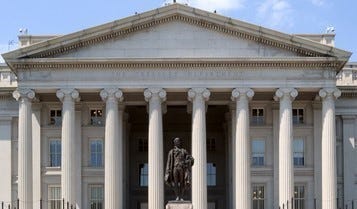America’s Credit Unions: Loosen Rules to Increase Financial Inclusion
Trade group says current rules hamper credit union efforts
Credit unions would serve more low- and moderate-income people if regulators and Congress allowed them to do it, America’s Credit Unions said this week.
The trade group told the Treasury Department that credit unions could increase financial inclusion if field of membership rules were loosened, and if credit unions were permitted to expand their lending.
The Treasury Department late last year solicited public comment on ways to increase financial inclusion in the United States. More than 100 groups and individuals filed comments with the Treasury Department on financial inclusion issues.
In America’s Credit Unions’ response, Senior Regulatory Affairs Counsel Amanda Smith wrote that the trade group does not favor regulatory oversight and mandatory requirements related to financial inclusion. This is because each credit union can only be as diverse as their field of membership permits.
Smith said that the pool of credit union members is limited by a credit union’s field of membership. “Policies that offer greater flexibility regarding FOM allows credit unions to serve a broader range of members, including those that are underserved,” she wrote, adding that the trade group supported legislation that would ease field of membership requirements for people in underserved areas. That legislation was introduced in the last Congress but was not enacted.
“Credit unions have been a critical provider of financial services to rural and underserved areas and [that] legislation would strengthen their ability to continue that work,” she wrote. Smith added that credit unions could serve more people if the technical term “service facilities” included digital channels.
In addition, she wrote that to increase financial inclusion, credit unions need more flexibility to offer small business and small-dollar loans. Credit unions often are not permitted to help as much as low- and moderate-income members may need. She said that under the National Credit Union Administration’s Payday Alternative Loan model, borrowers may receive a maximum loan of $1,000. She added that limits on the number of PAL loans a borrower may have at one time or in one year prevent some consumers from gaining access to those loans.
The Americans for Financial Reform’s Education Fund used the opportunity to renew its call for Congress to allow the U.S. Postal Service to offer a range of financial services.
“The Post Office is an ideal place to offer a public banking option because of its trained workforce, public interest mission, high level of public trust, and over 30,000 locations in communities across the country — over half of these offices are located in banking deserts,” the progressive group wrote. “The wide dispersion of Post Offices throughout the country could address the lack of mainstream financial services in many urban and rural communities.”
Three banking trade groups had another idea for making the financial services industry more inclusive. They suggested requiring credit unions to prove that they are providing services for distressed neighborhoods and populations.
Banks are subject to the Community Reinvestment Act, which allows their regulators to evaluate the institutions’ efforts to serve the communities where they are located. Credit unions are not subject to the CRA, since by design, they are supposed to provide services for their fields of membership.
“Banks should not be the only financial institutions with an affirmative obligation to ensure that their loans, investments, products and services equitably serve the entire market, including lower-income and lower-wealth communities and families and communities of color,” the American Bankers Association, the Bank Policy Institute and the Consumer Bankers Association, wrote in a joint comment.
The groups added, “Although credit unions have a mission to serve those of ‘modest means,’ there are no mechanisms to measure whether they do so.”



